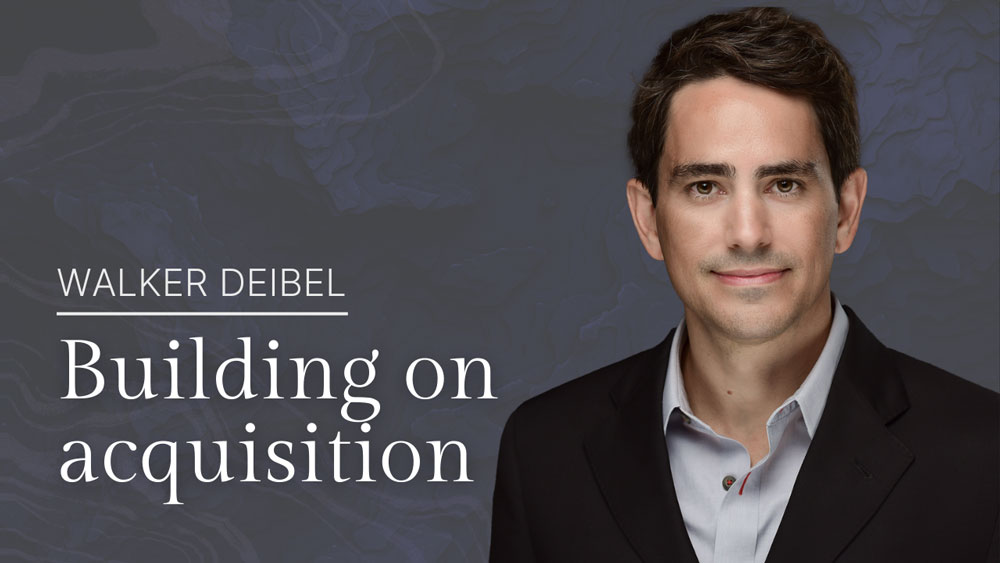Gillian Chepchirchir Moindi
7
min read
Mindful Leadership
Emma Richmond
Chair | TEC Canada
Key Highlights
Emma Richmond is committed to driving positive organizational change through her impactful work. In her role as TEC Canada Chair, she is responsible for overseeing a prominent peer advisory group in Vancouver, BC. This group connects successful CEOs of small and midsize businesses and is part of TEC Canada's nationwide network of over 100 peer advisory groups across the country.
Emma Richmond also plays a pivotal role as a partner at Eudara, an esteemed assessment firm. Her discussions revolve around the significant role that peer groups play in refining leadership resilience. She emphasizes the value of mentorship and offers insights into effective decision-making, which in turn contribute to personal and professional growth within organizations.
Emma had run her startup for six years and found it to be the greatest years of professional and personal growth. For that reason, she was naturally drawn to TEC Canada, a platform providing members with executive coaching and leadership development, where she was keen to share her own wisdom as a CEO and entrepreneur and help others become better business leaders.
As a leader, executive coach, and entrepreneur, she emphasizes the pivotal role of mental resilience in driving successful businesses. She believes that mentors, peers, and advisors elevate a leader’s ability to strike a balance between respect and authority in the workplace—ensuring that their guidance is both influential and compassionate. Hence, her mission is to create a haven where leaders exchange ideas for individual and professional advancement.
Career Trajectory
Emma Richmond has been in business leadership positions for more than two decades. Her deep business knowledge stems from years of experience working in different markets and operating a successful company. In addition, working and interacting with industry leaders has heightened her awareness of leadership challenges and potential. Therefore, she looks to build leadership and business capacity by sharing tried and verified interventions with members of her TEC Canada CEO Group.
Emma had been in PR Marketing for over 20 years, working in the UK and, eventually, Canada. Over the two decades, she handled projects for multinationals, strengthening her leadership foundation and cultural intelligence. Thus, she developed a unique perspective of corporate culture that considered collaboration and knowledge-sharing as performance and growth imperatives.
After she moved to Canada in 2004, she co-founded a marketing research business known as The Sound Research. The new venture drove her out of her comfort zone. Her new endeavour became a learning experience that made her evolve into a leader, more appreciative of stable human resources. “I spent most of my time problem-solving.”When she joined TEC Canada as a Chair of a peer advisory group, its offerings checked her values and business needs. TEC Canada brings together CEOs and business leaders from a local area into a mentorship group where they receive support, share knowledge and ideas, and recognize their business and professional innovations. Such interactions have kept her abreast of trends in leadership and the changing nature of work, especially after the Covid-19 pandemic.The Role of TEC
In TEC Canada, Emma ‘s approach as a Chair focuses on helping members reach their potential. The organization offers a platform with more than 1,900 members nationwide who aim for business growth. It is made up of different peer groups that align with categories of business leaders, their unique growth and learning needs. However, when joining a group, developmental needs, organizational size, and market specifications are taken into consideration.
"People are the essence of every business.”Emma has a transformational role in TEC Canada as a Chair of her growing peer advisory group. She has expert business knowledge and works to understand her members and their businesses in depth. For that reason, she conducts one-on-one coaching and facilitates the monthly meetings, which operate as something similar to a private board of directors for her members. A key element is trust and the relationships that develop are remarkable because of the sharing, support and trust in the group. She envisions flexible and resilient organizations, and she has been critical in building adaptive decision-making and leadership capacity. Her responsibilities include:
Promoting personal and professional development
Starting, growing, or exiting a company poses challenges for business leaders in Canada and worldwide. TEC Canada provides leaders at every growth stage with a chance to enhance their personal and professional skills while managing multiple responsibilities.
Fostering accountability
Emma helps leaders embrace their personal and professional diversity to determine their development needs. She helps nurture the appropriate leadership mindsets through one-to-one coaching sessions that help members identify problems with their leadership, tackle them and make the most of their unique situations.
Offering support
Most leaders and business owners lack a support system they can turn to for advice. Emma, as a TEC Chair, offers critical support: advice and pointers that guide effective decision-making across industries.
"From every interaction, there are things that I learn; having the peer support and sharing can be very acknowledging and validating."
Develop leaders' flexibility to change
As a skilled expert, Emma helps her members navigate change by developing broader perspectives on leadership that integrate insights from skilled individuals and global markets. As a result, the global perspectives help them navigate change as they integrate proven interventions in business, their careers and personal lives.Developing better decision-making
The TEC Canada membership experience centers around the private peer advisory group, which meets monthly. In this group, 12-16 exceptional executives from non-competing businesses gather to tackle challenges and identify opportunities. These peers offer unique perspectives that your employees cannot provide, helping you to evaluate solutions effectively.As a TEC Chair, Emma guides her group members to build their decision-making confidence and overcome obstacles.
Effective Leadership
Regardless of organizational structure, every organization has its fair share of challenges. However, when a challenge emerges, businesses tend to respond according to their organizational structures. For example, for a flat organization, equal power distribution means all employees, including subordinates, can come up with solutions. But, in hierarchical structures, differences in power distances mean leaders have the additional responsibility of devising solutions with great business impact. Nevertheless, hierarchical structures have become the most preferred systems despite having a higher strain on leaders than flat organizations. This structure affords leaders the autonomy and empowerment to explore their unique knowledge and creativity. They also have the advantage of exercising authority on a wider range, especially in evolving workplaces with interdependent departments (Foss & Klein, 2023). Therefore, organizations that use the hierarchical structure can facilitate positive organizational psychology as managerial duties are delegated to numerous departmental leaders, therefore reducing the burden on the CEO.
Research proves that showing vulnerability humanizes leaders. When people display their true feelings at work, they can explore new ideas, share their perspectives, and develop important solutions, moves that are only acceptable in an inclusive and diverse work environment. Hence, leaders must build work environments that embrace error and vulnerability for individual improvement.
Even though leaders benefit from being vulnerable, they would benefit further when they set clear boundaries. Vulnerability is known to foster mutual trust. However, a lack of boundaries carries professional and ethical risks for a leader (Omadeke, 2022). For example, oversharing is counterproductive to a culture of respect. It additionally places an emotional burden on subordinates, coercing them to a leader’s benefit."Boundaries bring a sense of honesty, collaboration, inclusion, and trust in an organization."
Peer advisory groups can facilitate positive organizational psychology. However, leaders need to know the challenges of peer advisory groups to make them more effective. Effective peer advisory groups foster productivity and job satisfaction. In the current business world, they can only work well if leaders put more intentionality into ensuring everyone contributes effectively and is well rewarded. According to Baym & Hadley (2023), there is increasing concern over inequalities in contribution to peer groups, causing some to put more effort for no rewards while others have minimum input and still get to enjoy the benefits. Therefore, understanding group dynamics is a performance imperative when integrating peer group models in operations.
Promoting Cohesion
"Moving away from the bad habits and towards the good ones, making changes, and making it possible to follow those changes can be beneficial to you. Positiveness is much more powerful, and keeping an open mind is impactful and beneficial to all of us."
TEC Canada members enjoy a unique advantage — exclusive access to expert speakers who inject group meetings with the latest thought leadership. Gain MBA-caliber knowledge that translates into immediate action. TEC Canada's speakers bring the industry's finest experts to the table, providing additional insights that foster the exchange of ideas and information among peers. With a wealth of data at your fingertips, a multitude of strategic options emerge across various domains, enhancing innovation and creativity within peer groups.
In the realm of leadership, fostering an environment steeped in knowledge-sharing becomes a cornerstone of successful operations. This environment harmonizes diverse ideas, feedback, and concerns into a tapestry of operational excellence. It's a delicate equilibrium that nurtures both mutual respect and open correspondence between colleagues and leaders alike. Leaders must embrace the art of offering and receiving feedback with grace, thereby unlocking untapped business value.In this landscape, information isn't just exchanged; it's meticulously integrated into a system that thrives on respect and appropriateness. This framework encourages the fluid dissemination of information, empowering its efficient utilization while steadfastly adhering to ethical boundaries. As knowledge flows freely, it nurtures growth, fuels collaboration, and propels organizations toward enduring success.
ConclusionEmma Richmond is excelling as the TEC Chair of a TEC CEO group in Vancouver, BC, and as a partner in her assessment business. Her extensive experience as a business leader, coupled with her learnings from her master's program, enable her to apply valuable lessons to her work. She believes that employees play a crucial role in detecting and reacting to change within an organization. Hence, investing in personal and professional development is essential to building the capacity to create innovative solutions when they are most critical to business.
References
Baym, N., & Hadley, C. N. (2023, May 15). The unequal rewards of peer support at work. MIT Sloan Management Review. https://sloanreview.mit.edu/article/the-unequal-rewards-of-peer-support-at-work/
Foss, N. J., & Klein, P. G. (2023, January 25). Rethinking hierarchy. MIT Sloan Management Review. https://sloanreview.mit.edu/article/rethinking-hierarchy/
Omadeke, J. (2022, July 23). The best leaders aren't afraid to be vulnerable. Harvard Business Review. https://hbr.org/2022/07/the-best-leaders-arent-afraid-of-being-vulnerable



